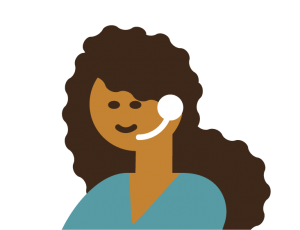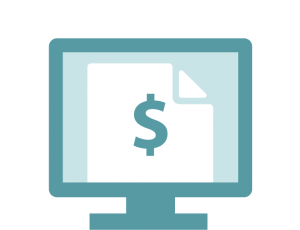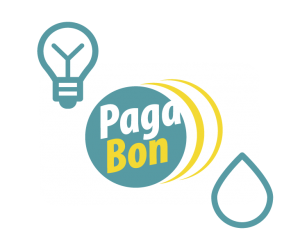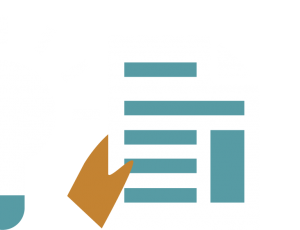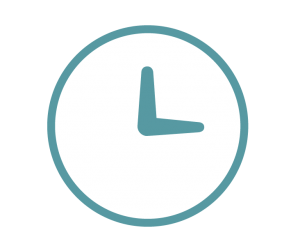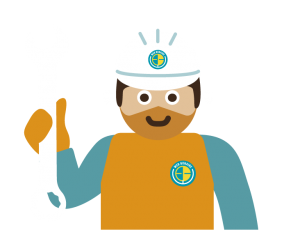Wastewater
Wastewater comes from septic tanks and cesspools. It is what the name says: waste. It is unhealthy and polluting. If we collect and purify wastewater centrally it will not end up in our groundwater and in the sea. Moreover, we can use it as irrigation water. In this way we save water, we stay healthy and protect the underwater world of Bonaire. Wastewater treatment is an important investment in the sustainable development of our island.
Hidden
Hidden
Wastewater collection
Wastewater treatment plants (RWZI)
The coastal strip of Kralendijk has a closed, modern sewage system. Via an advanced vacuum technology the wastewater goes to the Wastewater treatment plant (RWZI) at the Kaminda Lagun. The capacity of the RWZI is future-proof. Expansion is possible for the processing of 2800 m3 wastewater per day.
Small Wastewater treatment plant (RWZI)
The wastewater from the septic tanks and cesspools is brought by tank trucks to the Wastewater plant installation (RWZI) at the Kaminda Lagun.
Hidden
Hidden
Shared responsibility
Wastewater collection is a shared responsibility of the government, households and businesses.
In the sewage area, the coastal strip from Hato to Punt Vierkant and ± 330 meter inland, connection to the sewage system is mandatory for households and businesses.
In designated areas, or: ‘duty of care areas’, the government has the duty to collect wastewater with tank trucks. It concerns the urban areas in all districts and along the roads to Rincon and Sorobon.
Everybody who discharges wastewater is obliged to avoid environmental damage. That means that you do not pollute the soil, the groundwater and surface water.
It also means that you do not throw materials and products that are harmful into the toilet, shower, cesspool or septic tank.
Read here (pdf) the substances and products concerned
Wastewater treatment
In the treatment plants at Kaminda Lagun the wastewater is purified biologically: bacteria eat the pollution. This ‘Sequence Batch Reactor (SBR) principle’ is a natural process that is applied worldwide. The wastewater goes in four phases through a number of basins. In the SBR basin the work of the bacteria is regulated. This takes place according to an automatic program of aeration, mixing and settling. The purified water is stored.
Hidden
Hidden
Help the natural wastewater treatment!
Harmful substances kill bacteria. While it is precisely bacteria that must carry out the work: eat pollution! There are also products which can clog wastewater plants. The wastewater must be free of fat, oils, chemicals, textiles and plastic.
Together we can help the natural water treatment. How?
Read here (pdf) what you never should throw via the sink, toilet, shower, septic tank or cesspool!
Did you know that…
… many substances and products can be thrown away in the bin?
Please take note of the indications for separate waste collection!
…used oil can be dropped off for free at Selibon?
For companies Selibon collects used oil against payment and by appointment.
…chlorine is very harmful?
Liquid soap and cleaning vinegar are fine subsitutes!
…salty water is bad for the water treatment process?
Please make sure it will not come in your cesspool or septic tank.
Reusing water
Purified wastewater is reused for irrigation. Before being distributed, it is treated with UV-light. UV-radiation makes bacteria harmless and optimizes the quality of the irrigation water.
The irrigation water however still contains fertilizers. Therefore, irrigation water is never used for plants, but in the soil. In the soil and in the roots of the plants fertilizers are converted into nutrients for the plants.
The so-called ‘sewage sludge’ that is left from the treatment of wastewater is also beneficial to the plants. The sludge is dried and then used as a fertilizer.
Partners
The construction of the treatment plants and the sewage system are financed by the European Union and the Dutch central government. WEB cooperates with RHDHV (Royalhaskoning DHV) and with DOW (Public Works Department) Curaçao. Also with the other islands in the region we exchange knowledge and expertise.
On Bonaire WEB closely cooperates with the public services Directorate Land planning and Development (Directie Ruimte en Ontwikkeling) DRO) and Directorate Supervision and Enforcement (DTH).
For the delivery of irrigation water by water truck WEB has an agreement with Krusada Foundation. The foundation helps individuals and families with social problems and has been active on Bonaire for more than 20 years.
Projects
Below you will find specifications of a number of projects of the BU Wastewater of WEB.
Hidden
Hidden
9th EDF Partial Renewal irrigation water pipeline
Period: July 2020 – July 2021
From the Wastewater treatment plant (RWZI) at Kaminda Lagun an irrigation water pipeline runs to the city and to the hotels and the apartment complexes at the west coast which are connected to the sewage system. WEB is the project supervisor of the 9th EDF project: the partial renewal of the pipeline that will transport purified wastewater (irrigation water) back to hotels and apartment complexes at the coast. The work is financed by the European Development Fund, EDF.
The renewal concerns the part of the irrigation water pipeline from Belnem to Hato. The distance is 11 kilometers, in an intensively used area: the main road that connects the districts, the airport, hotel areas and the center of Kralendijk. It is an important, new artery in het network of RWZI. The pipeline guarantees the delivery of irrigation water for more than 38 hotel connections at the west coast.
Collection, treatment and reusage
It is important for Bonaire that hotels and apartment complexes can use irrigation water. Untreated wastewater affects the coral reefs and is unsafe for people. By collecting wastewater centrally, it does not end up in our groundwater and not in the sea. Reusing purified wastewater as irrigation water results in a considerable saving on the use of drinking water.
The 9th EDF is a large-scale technical project that is carried out for and by people of Bonaire. WEB is pleased with the collaboration with contractor BWM (Bonaire Wegenbouw Maatschappij), Public Entity Bonaire (OLB) (DRO, police, airport) and the telephony and data traffic companies that are all closely involved with this project.
10th EDF Expansion sewage infrastructure Belnem and Hato
Period: April 2021 – April 2022
The coastal strip of Kralendijk has an advanced sewage system working on a vacuum technology. The 10th EDF project provides the expansion of the sewage infrastructure in Belnem and Hato. The work is financed by the European Development Fund, EDF.
In Belnem the sewage system is expanded with a new vacuum station on the Kaya Saturnus. For the construction WEB, as project supervisor of the 10th EDF project, contracted the contactor Truckland Bonaire. The new station will relieve the existing vacuum station on the Kaya Maximiliano Chiana Rosario. Part of the vacuum pipeline in Belnem will be transferred to the new station. This will make about 173 home connections to the sewage system possible. In Hato parts of the vacuum infrastructure will be strengthened and approximately 45 house connections will be realized.
The project starts in April 2021 and will be completed in April 2022. After completion the sewage infrastructure of Belnem to Hato will be ready for existing and future expansions and developments. WEB Bonaire executes the project on behalf of the Public Entity Bonaire (OLB). For the supervision of the project WEB collaborates with Civil Engineering Caribbean (CEC).
Vacuum technology
The vacuum wastewater system uses low pressure and atmospheric pressure to transport wastewater at a high speed. From the plot of land the wastewater goes to a pit in the sewage system and further on to a collection tank in a vacuum station. From there it is pumped to the wastewater treatment plant at Kaminda Lagun.
This occurs in a closed pipeline network which has a constant low pressure. All valves in the sewage system operate pneumatically. Thus, no electricity or fuel is necessary for this.
The vacuum wastewater system is smart and future-proof: environmentally friendly and centrally controlled by RWZI at the Kaminda Lagun.
Delivery irrigation water by truck
Period: 2019 – present
Since August 2019 WEB has an agreement with the Krusada Foundation to deliver irrigation water per water truck. It concerns delivery to hotels, farmers and gardeners that want to use irrigation water for gardens and for agriculture.
Registration
Customers can contact the Krusada Foundation directly for the delivery of irrigation water. First they should register themselves with the LVV service for this. This is established at the Kaminda Lagun 32, telephone 7178836.
It is also possible to pick up irrigation water with your own water truck at the RWZI at the Kaminda Lagun. For this also the customers must first register.
After the registration the customers are provided with information about the use of irrigation water. Furthermore, will be evaluated if their installation, and a possible water truck, meets the requirements for irrigation water.
Costs
For delivery per water truck by the Krusada Foundation there is a rate of $7.00/m3. This includes the transport costs. The Public Entity Bonaire and WEB are making an effort to find possibilities to reduce this rate.
Of course there are no transport costs when picking up irrigation water with an own water truck. The rate is $1.50/m3.
In this way WEB offers the community of Bonaire different options. Our irrigation water is of good quality. WEB and partners endeavor to make it available for as many users as possible.
Collaboration with Krusada
Corporate social responsibility (Maatschappelijk verantwoord ondernemen (MVO)) plays an important role in the collaboration with Krusada Foundation. WEB has consciously chosen this collaboration and is proud about the agreement. The delivery of irrigation water generates revenue for Krusada. With this the foundation can continue investing in practical education and training for its customers.
About the Krusada Foundation
Krusada Foundation has been active on Bonaire for more than 20 years. The foundation provides support (former) addicts, (former) prisoners, young people and the socially or physically weak. Krusada has large work projects in the metal, wood and greenery sectors. These project locations are used for practical education and training.


